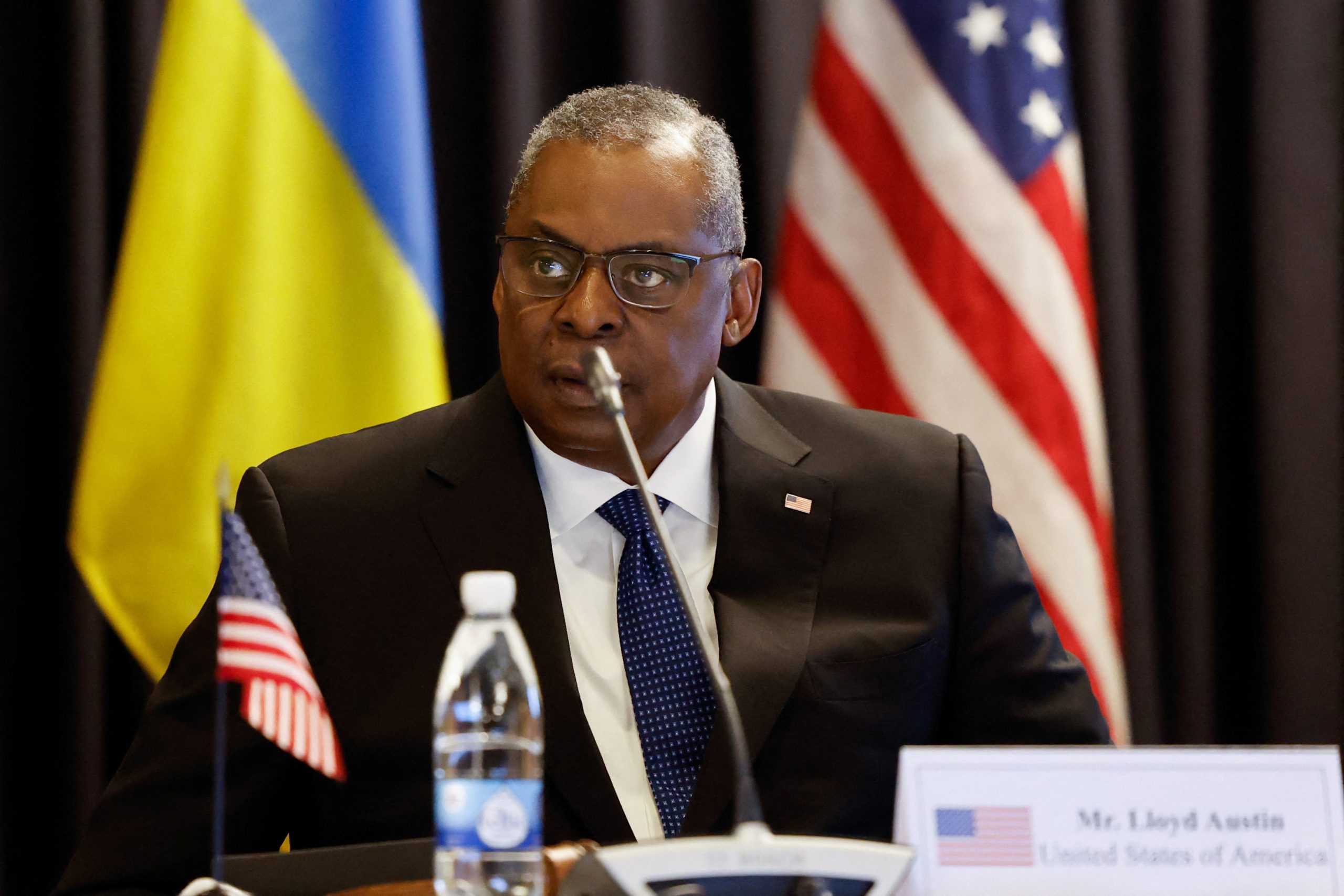
Chris Lange, FISM News
[elfsight_social_share_buttons id=”1″]
Friday kicked off the 11th meeting of the Ukrainian Defense Group at Ramstein Air Base in Germany amid concern over leaked U.S. intelligence documents that may well have jeopardized Ukraine’s defense against the Russian invasion.
Some of the highly-classified materials that surfaced on social media this month included maps of Kyiv’s military positions and details about its dwindling supplies of weapons and ammunition.
Politico reported that grim assessments about Ukraine’s capabilities in the war included among the trove of documents angered Kyiv officials.
As Ukraine’s allies gather to discuss the war, U.S. Defense Secretary Lloyd Austin will likely endeavor to show that Washington remains committed to Ukraine and confident that it can succeed in the war. A more difficult challenge will lie in trying to convince allies that the U.S. can be trusted to safeguard top-secret materials related to foreign partners.
If Austin’s recent trip to Sweden this week is any indication, he will have his work cut out for him.
During a Q and A with reporters at Sweden’s Muskö Naval Base, Austin was asked if he thought it wise that a 21-year-old had access to the nation’s top secrets. Massachusetts airman Jack Teixeira, 21, was charged in connection with the leak last Friday.
Austin replied that “the vast majority of our military is young.”
“It’s not exceptional that young people are doing important things in our military. That’s really not the issue,” he said. The defense secretary further pointed out that Teixeira is a “computer specialist” who worked in an intelligence unit and, as such, held top secret clearance.
“The issue is how you responsibly execute or carry out your duties and how you protect the information,” Austin said. “All of us have a requirement to do that, and supervisors have a requirement to make sure that that’s being done.”
NATO MEMBERS COALESCE BEHIND UKRAINE’S ACCESSION BUT FALL SHORT OF OFFERING TIMELINE
Fresh on the heels of his first wartime visit to Kyiv this week, NATO Chief Jens Stoltenburg told reporters on the sidelines of today’s meeting that every member of the alliance has agreed that Ukraine will eventually become a member. The pronouncement appeared to be more symbolic than substantive in that Stoltenburg gave no indication as to a probable timeline in which the accession, long wanted by Kyiv, would take place.
Instead, he said that the current focus is making sure that Ukraine succeeds in defeating the Russians.
Meanwhile, Ukraine doubled down on its sustained pressure campaign to acquire long-range weapons, fighter jets, and ammunition from the West.
Ukrainian President Volodymyr Zelenskyy said after meeting with Stoltenburg Thursday that he had “asked Mr. Secretary General to help us overcome our partners’ reticence to supply some weapons, namely long-range weapons, modern aviation, artillery and armored vehicles,” per Reuters.
Ahead of the meeting, the Biden administration announced an additional $325 million in new military aid for Ukraine, including additional ammunition for High Mobility Artillery Rocket Systems (HIMARS), advanced missiles, and anti-tank mines.
Defense News reported that the U.S. will begin training Ukrainian troops on the use of promised Abrams tanks in the coming weeks. Around 30 U.S.-built M1 Abrams tanks will travel to Germany by the end of May to be used for training Ukrainian troops, per a U.S. official. Defense Secretary Austin is expected to formally announce the delivery at today’s meeting in Germany.
MINES, MUD SLOW BATTLEFIELD PROGRESS
Friday’s meeting comes at a pivotal time in the 14-month invasion as Ukraine seeks to mount its long-awaited spring counteroffensive, which Ukrainian Deputy Defense Minister Hanna Malyar said Wednesday is at least partially underway.
Britain’s Ministry of Defense noted in its latest war assessment that both Kyiv’s and Moscow’s forces have struggled to make progress in recent days, hampered by significant mud from a spring thaw. The Ministry added that “The threat from mines probably continues to be a more important factor in limiting the combatants’ off-road [maneuvers].”
The Ministry did note that Russian media outlets “are likely exaggerating the overall impact of mud on Ukrainian forces” in an effort to boost morale and deter Ukraine’s supporters.
